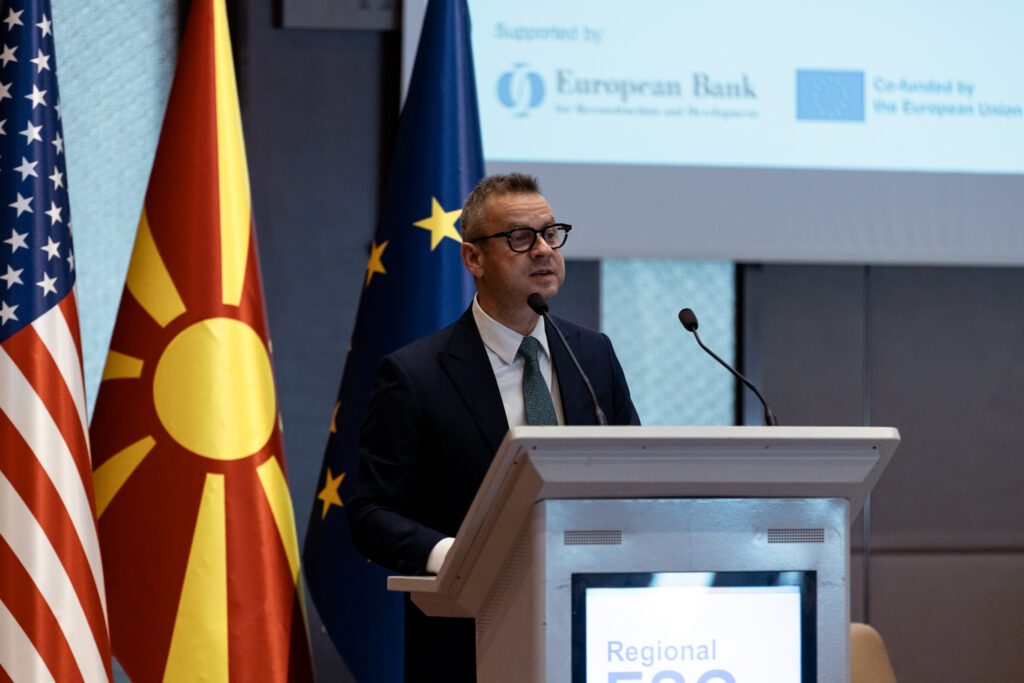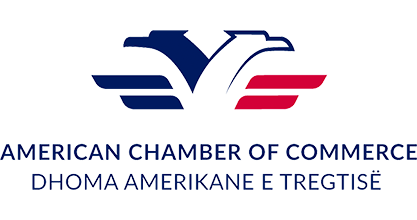The regional ESG Conference in Skopje, co-organized by AmCham North Macedonia and AmCham Serbia, in n partnership with AmCham Albania and AmCham Kosovo, underscored the urgent need to align Environmental, Social, and Governance (ESG) practices and legislation across the Western Balkans with evolving European Union standards. Under the theme “ESG in the EU Regulatory Landscape: Implications for Companies in the Western Balkans,” the event convened business leaders, policymakers, and ESG experts to explore how regulation, financing, and corporate accountability intersect in shaping sustainable business environments.
AmCham Albania was represented by Neritan Mullaj, Executive Director, and Dritan Nako, Secretary of the Board and Executiv Director of the ESG Network. Mr. Nako took part in the first panel discussion alongside representatives from regional companies and AmCham EU, sharing the Albanian business perspective on ESG integration.
The conference was structured around two key sessions, both focused on the foundational elements of a successful ESG ecosystem: robust regulatory frameworks and access to financing.
In the first session, Mr. Nako highlighted Albania’s progress in embedding ESG principles into business practices, especially in the context of green energy transition and decarbonization. He emphasized that regulatory alignment and institutional clarity are essential for businesses to earn trust, attract investment, and remain competitive in the long run. Discussions throughout the conference stressed the importance of enabling policies that actively remove barriers to green transition—such as improving access to alternative fuels and sustainable technologies. Panelists agreed that while regulation is a critical driver of decarbonization, it must be implemented in a balanced and realistic manner, particularly in developing economies, so as not to negatively impact competitiveness.
Speakers also called for stronger institutional and financial support across the region to help businesses comply with the EU’s increasingly rigorous sustainability requirements. Predictable and coherent regulation was seen as essential to help companies plan, invest, and transform with confidence.
In addition to regulatory considerations, the forum addressed the proactive role of the private sector. Businesses were encouraged to invest in ESG capacity building and view sustainability not merely as a compliance obligation, but as a core strategic priority.
The ESG Conference in Skopje served as a vital platform for fostering regional alignment with broader European sustainability goals. It reaffirmed that the path to a sustainable and competitive future must be built on collaboration, clarity, and shared commitment.





